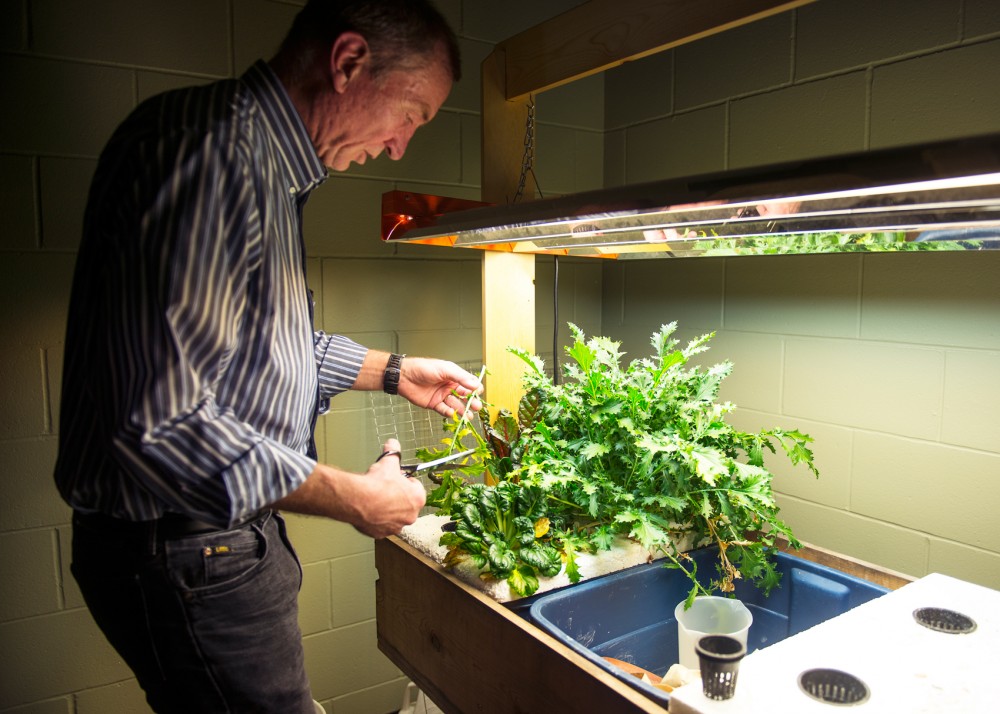Student renters who aren’t allowed to dig in the ground to plant gardens can still exercise their green thumbs by getting creative with where they grow their produce.
Gardening Matters, a local organization that works to grow the number of community gardens in the Twin Cities, currently offers workshops to teach landowners and tenants how to garden with the space they have.
The free workshops — which began last summer in the Phillips and Powderhorn Park neighborhoods — take an hour-and-a-half and are run by Gardening Matters Program Director Nadja Berneche.
At workshops, Berneche discusses the perspectives of both renters and property owners. She said she helps residents learn to talk with landlords to negotiate and set expectations for proposed gardens.
Berneche said Gardening Matters held focus groups with residents and property owners from Minneapolis neighborhoods to receive feedback on problems the groups face with in-ground gardens.
“It really was something that arose out of our community feedback processes and some creative problem-solving around land access,” she said.
Berneche said renters in focus groups said they experienced communication problems, while land owners worried that renters wouldn’t keep gardens maintained.
Getting green in tight spaces
Tom Michaels, a horticultural science professor at the University of Minnesota, researches alternative ways to garden that avoid space problems common in traditional in-ground methods.
He said the most common alternative is using large pots, but devices like garden tables are also gaining popularity.
Michaels said he first saw gardeners use tables to hold potting soil about 12 years ago while working on a different project.
“In that table, people were growing mostly salad greens,” he said. “It was less about design and more about trying to provide some food in situations where a regular garden that was flat on the ground either was impossible or didn’t make sense.”
Though Gardening Matters’ primary focus is community gardens, Berneche said those gardens can be crowded or have waiting lists despite being more spacious than individual home gardens.
“Even with community gardens, space is a challenge,” she said. “We started to explore some other creative options.”
She said the group also wants to promote the benefits of gardening, like fresh-grown food and physical activity.
“A lot of renters and property owners are concerned about, ‘How much space will this take up and how permanent will this be?’” Berneche said. “There are a lot of creative ways where you can do some growing that don’t have to be right in the ground.”
Michaels’ research on hydroponics — growing plants without using soil — prompted him to combine the process with gardening tables, which led him to build a hydroponic salad table in 2010. Since then he’s been developing the tables and researching their uses.
“That sort of thing makes a lot of sense to me in terms of more urban or rental situations because you’re not asking … the property owner, ‘Can I dig up your yard?’” he said. “That’s sometimes a problem.”
The tables can grow enough greens for a salad per day, depending on how much is planted. They also don’t use electricity and can be left alone for weeks, Michaels said.
Living and growing together
While alternative gardening methods are gaining popularity, some apartments, like the Marshall Student Housing Co-op, keep community gardens for their building’s residents to create more traditional spaces for the pastime.
Joe Goetzke, leasing and marketing manager for Riverton Community Housing — the parent organization of the Marshall Co-op — said their community garden began three years ago.
“It was an interest from residents that sparked the idea,” he said. “[The co-op] does allow for residents to have a say in how things are running in the building.”
Residents determined the garden’s location, found volunteers and take responsibility for its upkeep, he said.
Marshall Co-op resident and psychology sophomore Alana Lieske helps run the garden with her roommate. Lieske said she took over when she moved there in 2014 and finds it a rewarding reason to get outside.
She said they plant flowers, cucumbers, tomatoes, onions and other produce that is available for the co-op’s community to harvest any time.
“It’s good for people to know how to grow their own food,” she said. “I wish more apartment buildings were open to the idea of gardening.”








